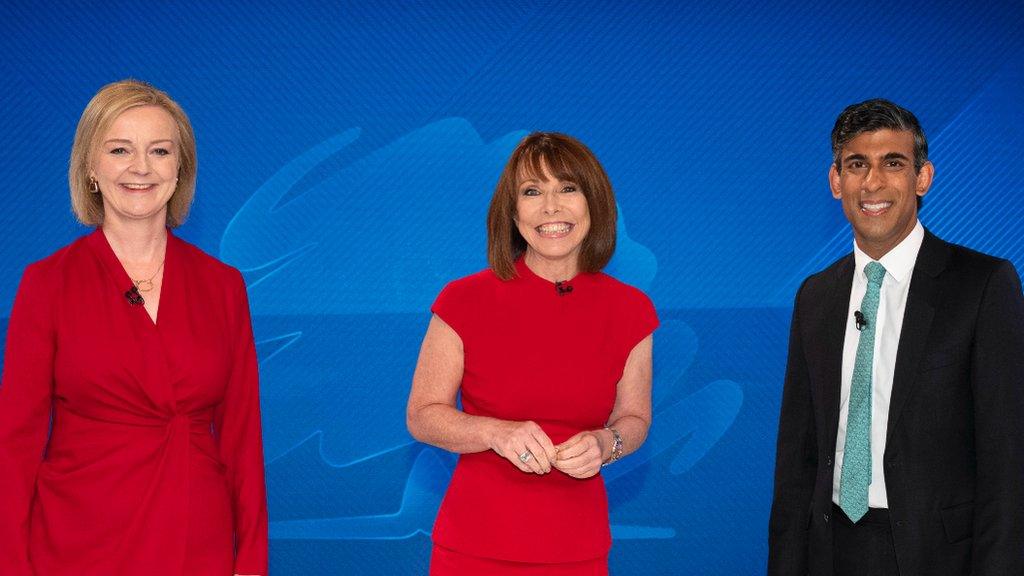Liz Truss not ruling out emergency payments, says Penny Mordaunt
- Published
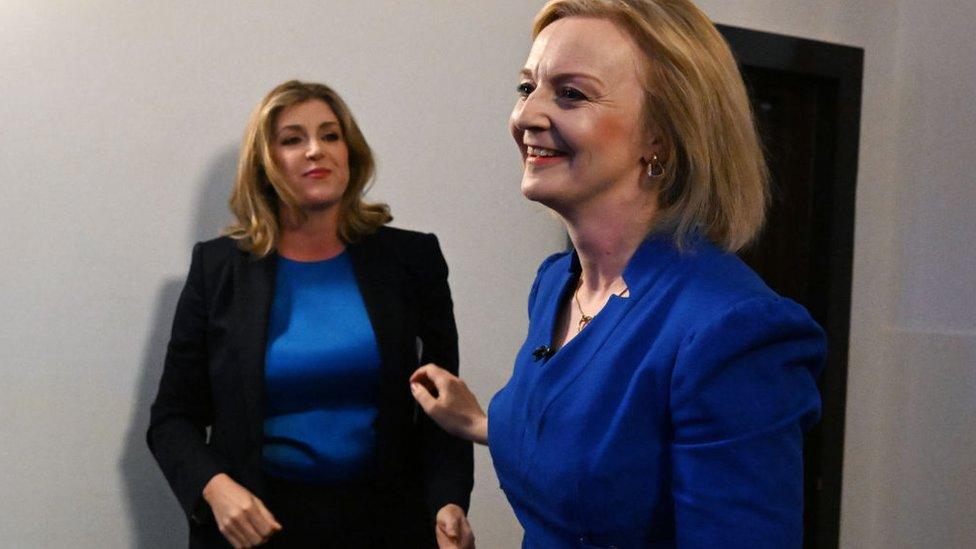
A senior ally of Liz Truss says the Tory leadership candidate has not ruled out giving help to families struggling with the cost of living crisis.
Penny Mordaunt claimed that to say so was "overinterpreting" what Ms Truss had previously said.
The foreign secretary had said she would focus on "lowering the tax burden, not giving out handouts".
Rishi Sunak, her leadership rival, said she was "simply wrong" to rule out more cost of living payments.
Speaking to BBC Radio 5 Live, trade minister Ms Mordaunt said Ms Truss had not ruled out expanding direct payments to help people struggling financially.
The former Conservative leadership candidate said: "There'll be different things required for different people - there's the package of support that's already been put in place [and] Liz is looking at other measures."
In an interview with the Financial Times this weekend, Ms Truss said she would "look at what more can be done", adding: "The way I would do things is in a Conservative way of lowering the tax burden, not giving out handouts."
Ms Truss has also said she would seek to immediately reverse the rise in National Insurance contributions if elected.
Her team, who initially thought the plan could not be implemented until April 2023, have said they now believe it would be within weeks.
But Mr Sunak has said the tax proposals would not be a significant help for "people like pensioners or those on low incomes who are exactly the kind of families that are going to need help".
Instead, the former chancellor said he would give more direct help to those hardest hit by inflation.
Ms Truss and Mr Sunak are vying for support from Conservative party members to be elected the next party leader, and prime minister.
Voting has started and the result is due to be announced on 5 September.
Oliver Dowden, former Tory party co-chairman and a supporter of Mr Sunak, said the foreign secretary's approach was "insufficient".
"This isn't the way to help people through this very difficult period", he said.
Since April, workers have been paying more in National Insurance - an extra 1.25p in the pound - although Mr Sunak later raised the threshold at which employees start contributing.
Writing in the Sunday Telegraph,, external Ms Truss said she wanted to "immediately tackle the cost of living crisis", adding: "I would hit the ground running by bringing in an emergency budget, charting a firm course to get our economy growing in order to help fund our public services and NHS."
But Mr Sunak, who has argued that inflation must be brought under control before taxes are lowered, told the Sunday Times, external: "The priority for me is to not do things that make it worse."
He said the public needed "clear-eyed realism and not starry-eyed boosterism", and said his rival's plans would give back less than £200 a year to many families, and "are not going to help very significantly" pensioners and those on low incomes.
Mr Sunak pledged to introduce a fresh multi-billion pound package of help.

Analysis by Ben King
Both candidates agree that people will need more help with the cost of living this autumn, but fixing it with tax cuts alone will be tricky.
Tax cuts will only bring relief to taxpayers. Cutting the health and social care levy doesn't put money in the pockets of pensioners or anyone earning less than £12,570 - as they don't pay it.
Someone earning £24,100 a year would save £180, according to HMRC, while higher-paid workers would gain considerably more.
So the help is poorly directed at those who will feel the pressure of rising bills most acutely.
And with the public finances under growing pressure from a predicted recession, whoever is chancellor will have limited resources at their disposal.
So they may decide that tax cuts alone aren't the most efficient way to provide help.
The new prime minister won't start the job for another four weeks. Until then the candidates will come under increasing pressure to spell out their plans.

It comes as former Labour Prime Minister Gordon Brown has said an emergency budget was needed now.
Writing in the Observer,, external he said Prime Minister Boris Johnson, Ms Truss and Mr Sunak should agree on one this week, warning "a financial timebomb will explode for families in October" when the energy price cap next rises.
A report commissioned by Mr Brown suggests some families are set to be £1,600 worse off per year.
The additional money from the government offered to low income households falls short of offsetting the losses they face, the research led by Prof Donald Hirsch at Loughborough University says.
"It is the urgent task of the next prime minister to ensure that families have enough to live, through this crisis and beyond," Mr Brown said.
A government spokesperson said they understood people were struggling with rising prices, which was why an extra £1,200 was being made available to eight million of the most vulnerable households.
"Through our £37bn support package we are also saving the typical employee over £330 a year through a tax cut in July, allowing people on Universal Credit to keep £1,000 more of what they earn and cutting fuel duty by 5p, saving a typical family £100," they added.

CHEAP DINNERS: Simple recipes that will cost you £1 a portion, or less...
REPAIR AND RE-WEAR: How sewing, mending and upcycling can transform your wardrobe

Related topics
- Published7 August 2022
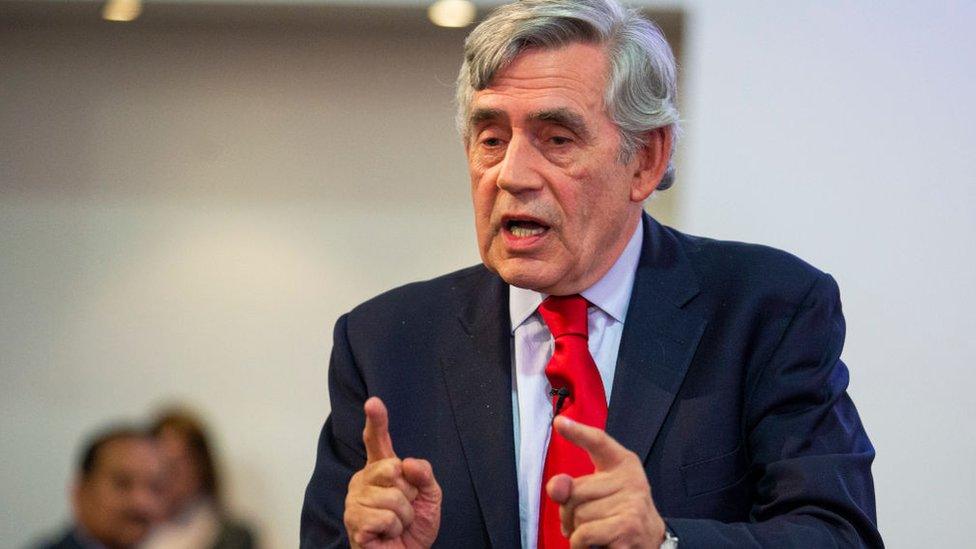
- Published6 August 2022
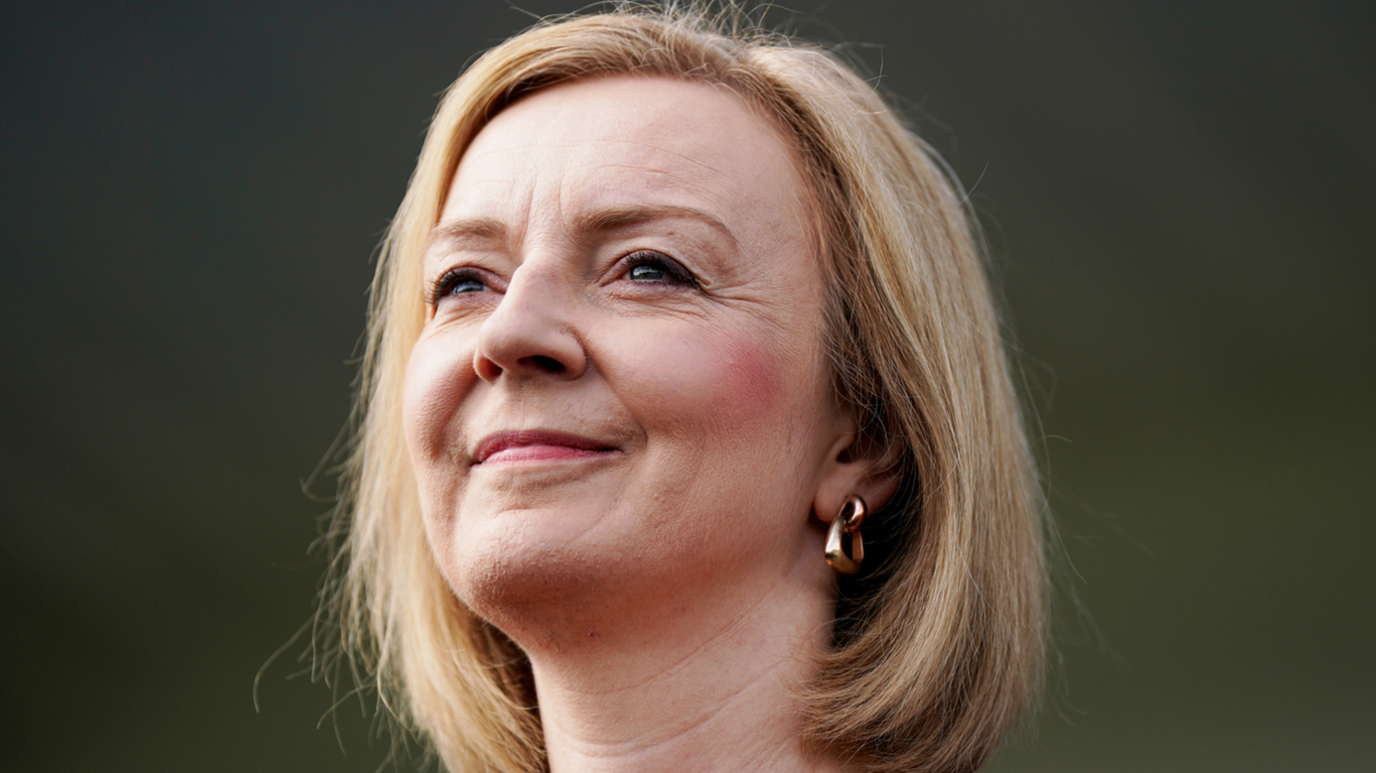
- Published5 September 2022
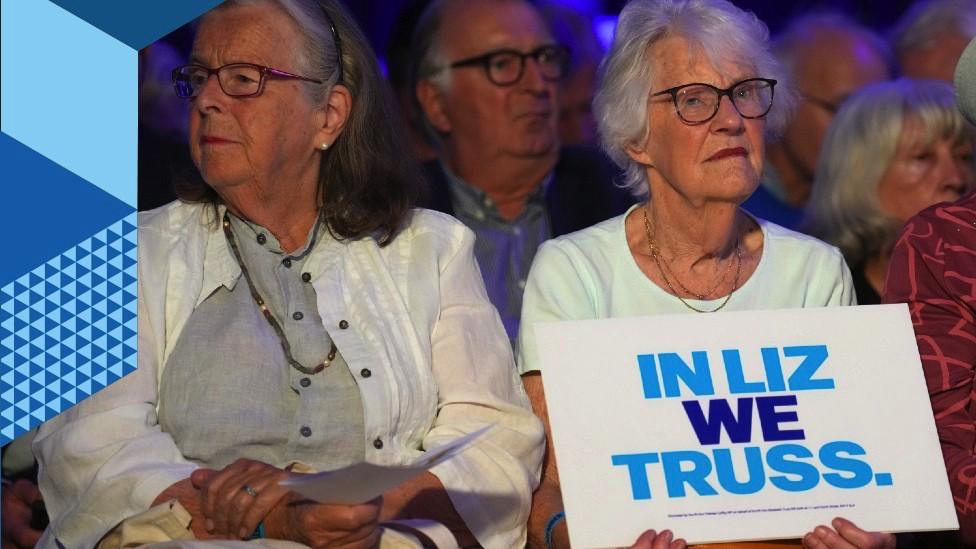
- Published5 August 2022
